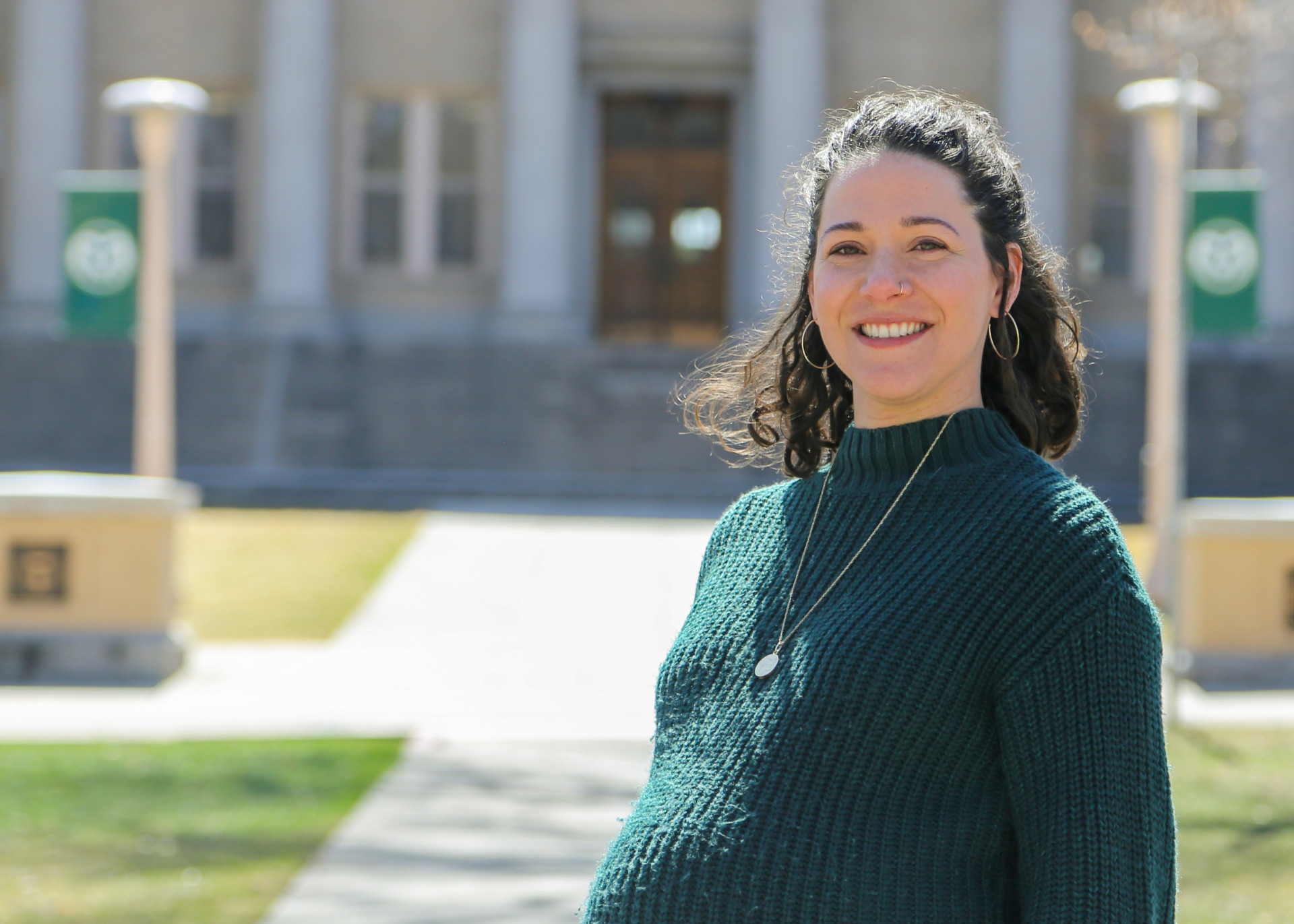
CSU doctoral student Vanessa Vosteen is the 2019 recipient of the Martin Luther King Jr. Scholarship from the Graduate School.
Vanessa Vosteen, a doctoral student in counseling psychology, has been selected as the recipient of the 2019 Martin Luther King Jr. Scholarship for her commitment to underrepresented student education.
Vosteen received the Martin Luther King Jr. Scholarship for her contributions to the enhancement of individuals from ethnically diverse populations, dedication as a role model, and for scholarly excellence. The scholarship is annually presented to a Colorado State University graduate student by the Graduate School and provides full support for one academic year. The award is part of the Graduate School’s longstanding commitment to diversity, multiculturalism, and social justice, with ongoing dedication to the inclusion and affirmation of all individuals and those reflective of individual differences. Vosteen was awarded the honor in May at the Celebrate! Colorado State award ceremony.
Vosteen is currently conducting research in the lab of Silvia Sara Canetto, a professor in the College of Natural Sciences’ Department of Psychology. Canetto’s lab helps promote educational advancement through the active exploration of gender scripts, intersectional identities, cultural norms, stereotypes, and narratives of women in STEM graduate programs.
Advocating for the unrepresented
Vosteen said she believes clinical work with underrepresented groups promotes individual and community health, which in turn facilitates improved educational outcomes. It’s the reason she wants to become a clinical practitioner in service to the educational advancement of underrepresented and under-resourced groups.
In addition to performing her role as a researcher and clinician, she also serves as a role model and adviser for students as a graduate teaching assistant, where she can actively apply and engage her base of knowledge to better serve the undergraduate population, specifically those coming from underrepresented or nontraditional backgrounds. This position places her in the position to help as she said students view the role of GTAs as more accessible, approachable, and relatable. This offers her a unique opportunity to engage with her students.
“All of my interactions with students, whether it is to vent, celebrate, or ask for help has been incredibly rewarding.”
—Vanessa Vosteen, doctoral student, Department of Psychology
“They confide their frustrations of feeling excluded and isolated because of having a majority European American faculty and student body,” she said. “They vented about instances when their discussions on inequality in education were met with defensiveness and apathy from their peers. This was my first opportunity to act as an encouraging role model for undergraduate students at CSU. Thus far, all of my interactions with students, whether it is to vent, celebrate, or ask for help has been incredibly rewarding.”
With a passion and calling to serve as an advocate, Vosteen also is active and involved in various initiatives and programs across campus. For instance, she began a student-led effort to work with campus programs, such as the Adult Learner and Veteran Services, to help streamline and expand access to various CSU and community programs to student families, with specific attention to single and low-income parents. She also serves on the Counseling Doctoral Student Association, which strives to provide inter-student support with other faculty, staff, and students to address and advocate educational needs and competencies.
Educational advancements for the underserved
Vosteen’s commitment to educational advancement in underrepresented communities and service as an advocate and role model has persisted throughout her academic and professional career beyond her time at CSU.
After completing her undergraduate studies at George Mason University, she spent two years in Guatemala, where she learned about community-led needs and strategies for improving safety, public health, and prosperity. There, she developed a community clean-up project that would expand the size of a local school, simultaneously addressing two needs for the community she was supporting.
Later, while studying at Tulane University for a master’s degree in public health, Vosteen received a Tinker Research Grant from the Stone Center of Latin American Studies to conduct research involving healthcare, educational, and vocational access in women’s prisons in northeast Brazil. The report’s findings were later leveraged by the Brazilian government to advocate for prison reform. She also received the R. Elise Magnus Memorial Achievement Award for her role in disease prevention and health promotion educational campaign in greater New Orleans.
Vosteen also worked to help develop and evaluate the first Telehealth initiative in Washington, D.C., which would expand mental health therapy and psychiatric services to the low-income, Spanish-speaking population living in the city, while working in the mental health and substance abuse department of a nonprofit clinic.
“I believe education and mental health are inextricably connected,” she said. “Becoming a licensed psychologist and researcher will undoubtedly bring new responsibilities and opportunities, but I will be in a position to directly influence aspects of my future students’ academic experience. Further, I will be able to contribute to the public’s understanding of the social justice issues pertaining to underrepresented students.”